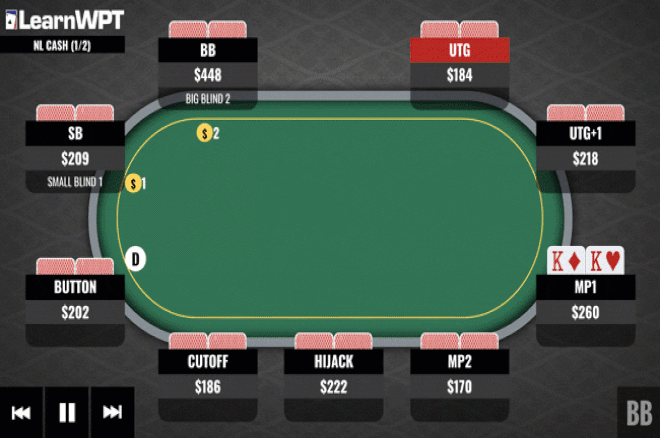Pocket Kings on the Flop Versus a Big Blind Leading Bet

DECISION POINT: In a no-limit hold'em cash game, it folds to you in middle position and you raise with K?K?. It folds around to the big blind who calls. The flop comes 6?9?10?, and your opponent leads with a bet. Action is on you...
PRO ANSWER: After the villain leads for $20 on the flop, both calling and raising will be profitable and run fairly close to each other in EV in a vacuum.
However, we can opt to raise this lead as a default for a secondary reason: Making continuation raises like this can protect future continuation betting opportunities against this player and potentially other opponents observing this hand.
After raising the flop, we should be willing to call off if our opponent moves all in. Our hand will show a slight profit calling an all-in on this flop in the long run.
If our opponent calls the continuation raise and then checks on the turn, our action will depend on the turn card. Any eight, ten, or spade are all cards that we should often check behind on with our specific hand.
We can bet out again on many turn cards both for value and to deny our opponent equity after they call our c-raise.
Raising is the best play.
LearnWPT is a poker training site dedicated to transforming the poker games of rank beginners, skilled amateurs, and aspiring professionals. Offering both Live Workshops and Online Training, is a one-stop shop for poker education, designed to provide all the tools a player needs to become a winner. Visit LearnWPT.com today and get 2 Free Strategy Episodes that will immediately impact how you play. LearnWPT.com - Think Like a Pro!









